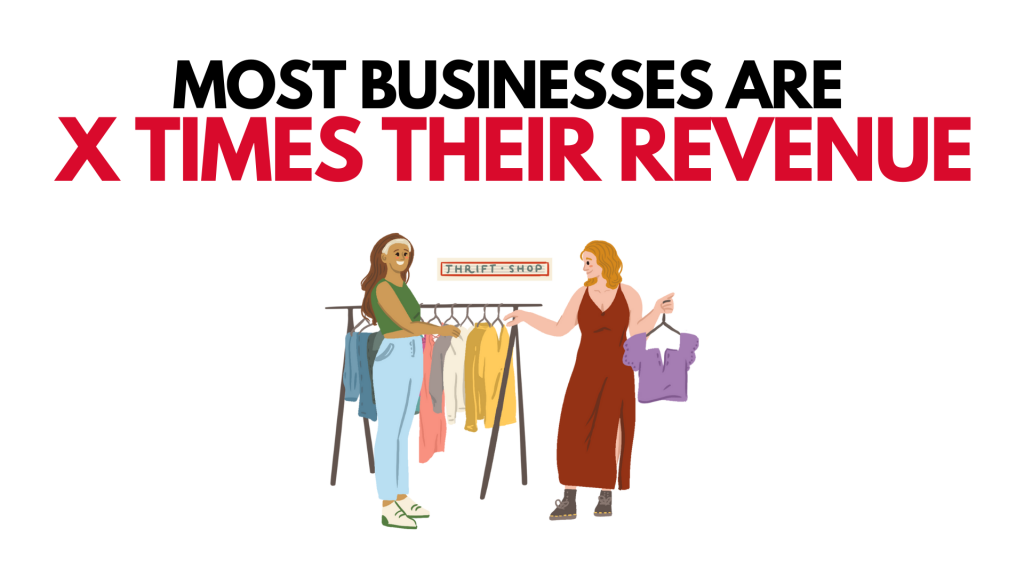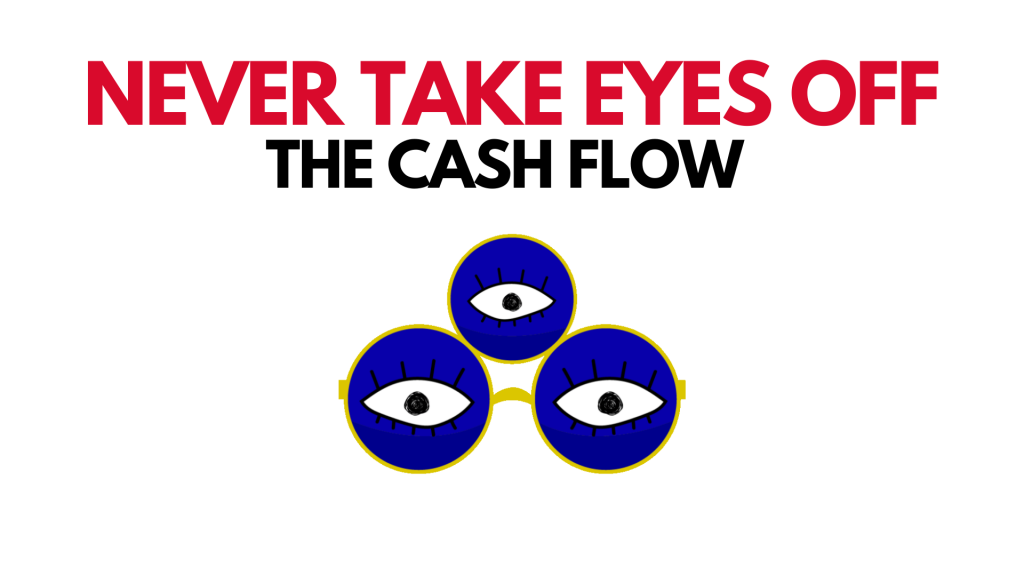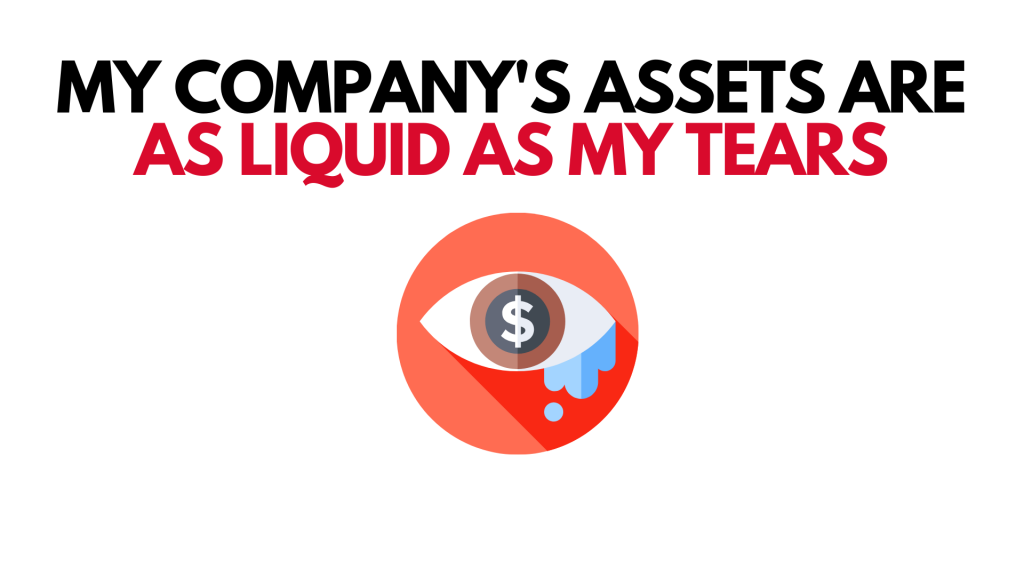Late-night brain scratching, working overwhelming hours and going through random meltdowns—all of these make the top spots for the ‘traits of a founder’ list.
Although most founders are not happy with these traits, they actively acquire them as a result of their will to thrive in the construct of capitalism by making the most money in the least amount of time.

So, if a founder’s long-term vision is to be a successful capitalist, he/she should develop the skill to value his/her business correctly and this article aims to help aspiring entrepreneurs on the same by providing 6 methods of business valuation every founder must know about.
“Its worth more.”, said the budding entrepreneur
“Well, who told you that?”, asked the investor through the phone
“My mom did. I want a fair sum for all of my effort!”
What Is Business Valuation?
Business valuation is the act of calculating the overall monetary value of a business that helps the founders, as well as current and future shareholders, to know the actual worth of a company. A proper business valuation becomes important when and if the company wants to raise capital, sell a portion of its business, or even apply for loans.

It is also a powerful driver for enforcing company-wide governance. Valuating the business helps the company to track the overall performance of the company, such as strategic decision-making effectiveness, the ability of the individuals of the company, the overall revenue generation, net profit, tax reporting, and it even helps in determining and predicting future plans and finances.
However, to estimate a company’s fair value is like solving a math problem. There can be many different ways and models that may be employed, but deciding which model to use and the necessary inputs can be very subjective.
Let’s start going through the various methods that help a founder value his/her business appropriately.
1. Market Capitalization
In market capitalization, the stock market determines a company’s worth. The value of a company’s share is specified first through an IPO (Initial Public Offering) and market capitalization can only really be used as a valuation technique if the company is publicly owned.

Let us take Company ‘A’ as an example.
If company A wants to go public, they first enlist an investment bank so that they can employ valuation techniques. This valuation technique helps company A understand how many shares they want to give out and how much would they set their price per share. If company A values at Rs. 1 Crore, they may issue 10 Lakhs shares at Rs. 10 per share. So, the initial market capitalization for company A would be Rs. 1 Crore.
When the company goes public, the demand and supply of its shares determine how much increase in the price per share company A gets. The share prices can skyrocket or dive down, according to it.
Market capitalization is one of the simplest ways to value a business. It is calculated with the formula:
Market capitalization = Company’s share per price X Total numbers of shares outstanding
If company A is traded after one year of going public at Rs. 80 per share, with 10 Lakhs share, their company valuation after one year of going public would be (80 X 10,00,000) = 8 Crores. An increase of 8 times the valuation at the time of going public.
2. Times Revenue Method
Times revenue method is also known as the multiples of the revenue method. As the name suggests, this method uses many different current revenues to determine the maximum value or the ceiling of any business. The times revenue method generates a range of value for the business.

The ranges of revenues are based on actual revenues of the company from the previous years or fiscal calendars. A multiplier creates a range that can be used as a negotiating starting point. The times-revenue method, in effect, tries to value a company by valuing its stream of sales cash flows. This method is not always a very reliable method to use as revenues are not always profit, and when the revenue of a company increases, it is not always an indicator of increased profit.
The times revenue method is ideal for small or young businesses with very volatile incomes. For example, in the case of company A, with the help of the times revenue method, company A might be valued 5 times the revenue which may or may not be accurate and reliable.
3. Earnings Multiplier
The earnings multiplier can be a complicated topic as it frames a company’s stock price with its EPS (Earnings Per Share). The earnings multiplier is a handy measure for measuring how high a stock’s current price is about its company’s earnings per share.
Let us retake the example of company A. After the company went public, halfway through the year, the company’s current stock price is Rs. 50 per share, and the EPS (Earnings Per Share) is Rs. 5. With this equation, we will get the earning multiplier of (Rs. 50 / Rs. 5) 10 years.
In simple terms, it would take company A 10 years to get back the stock price of Rs. 50 with the current EPS. We can also say that company A is trading at 10 times the earnings. The earnings multiplier compares future profits to cash flow that might be maintained across the same time at the present interest rate.
The Earnings multiplier becomes a much more reliable source of company valuation than the times revenue method as a company’s profits are more reliable indicators than sales revenue.
4. Discounted Cash Flow (DCF)
Talking about looking at the future, discounted cash flow governs the value of an investment based on future cash flows.
The basic concept of discounted cash flow is understanding and knowing how much an investor would receive from an investment. This is also done through the adjustment of the time value of money.

In the principle of the time value of money, Rs. 1000 today matters more than Rs. 1000 tomorrow because it can be invested and also because of inflation. Usually, discounted cash flow is calculated with the formula:
DCF = (CF1 / 1 + r1 ) + (CF2 / 1 + r2 ) + (CFn / 1 + rn )
Where,
CF = Cash flow of the given year
CF1 = Year one cash flow
CF2 = Year two cash flow
CFn = Additional years cash flow
r = The discount rate
Overall, this strategy is based on future cash flow estimates that are updated to determine the company’s current market value.
5. Book Value
As in its name, book value determines the value of shareholder’s equity as shown in the books on the balance sheet statement. The cost of carrying an asset on a company’s balance sheet is equal to its book value, calculated by netting the item against its cumulative depreciation.

This makes the book value to be thought of as a company’s net asset value (NAV), which is derived by subtracting total assets from intangible assets (patents, goodwill), as well as liabilities.
6. Liquidation Value
The overall value of a company’s physical assets when and if it was to go out of business and have its assets sold is known as liquidation value. The net cash that a company would receive if its assets were liquidated and its liabilities were paid off today is liquidation value.

Let’s take the example of company A one more time.
The liabilities of company A is Rs. 50,00,000. The book value of the assets on the balance sheet is Rs. 1 Crore, with a salvage value is Rs. 5,00,000, and the estimated value of selling all assets at auction is Rs. 75,00,000. Therefore, the liquidation value of company A would be (75,00,000 – 50,00,000) = Rs. 25,00,000.
Conclusion
Business valuation can provide security and a goal-oriented mindset to various businesses, companies, and organizations. It gives the business owner a means of information on the company’s true worth or value in terms of market competition, asset values, and income values. For any business person or entrepreneur, it is very essential to be able to value their business.
To understand where they stand in the market with their business so that all the late-night brain scratching, overwhelming working hours, meltdowns, and patient composures can be looked back with a huge smile and satisfaction.
